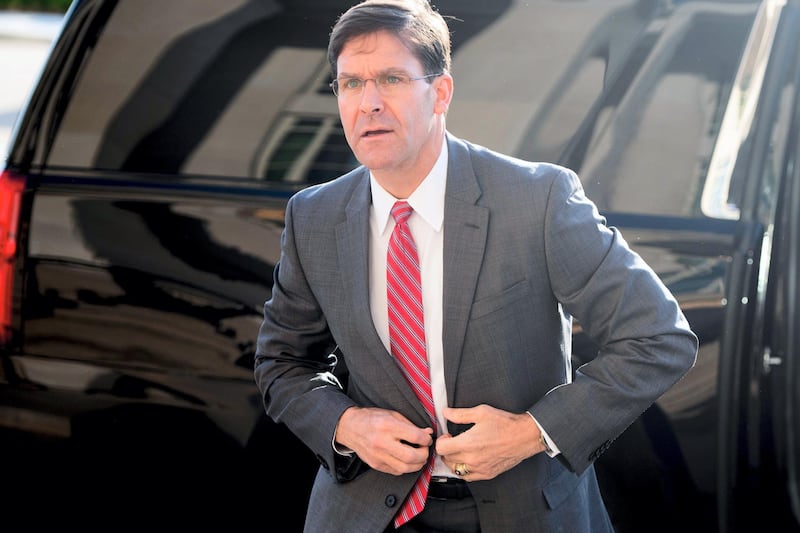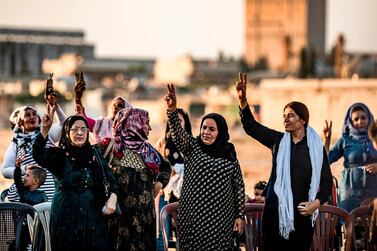US and Turkish defence chiefs Mark Esper and Hulusi Akar on Wednesday discussed the early stages of opening a joint security centre to establish a safe zone in north-east Syria.
Pentagon spokesman Jonathan Hoffman said the call between the two officials highlighted the progress made on the centre to which both sides agreed on August 7.
That agreement also entailed a “safe zone that shall become a peace corridor, and every effort shall be made so that displaced Syrians can return to their country".
“Secretary Esper and Minister Akar praised the work the military-to-military delegations accomplished thus far and welcomed the implementation of a security mechanism in north-east Syria,” Mr Hoffman said.
“The US and Turkey will execute the plan in designated phases and in a co-ordinated and combined manner at all times.”
Two US military delegations have visited Ankara in the past two weeks, and while differences remain on the size of the safe zone in Syria, some progress appears to have been made.
“While there are still technical details to be worked through, Secretary Esper and Minister Akar confirmed their intent to take immediate, co-ordinated steps to implement the framework as demonstrated by standing up the Joint Co-ordination Centre in Turkey,” Mr Hoffman said.
Ankara said Mr Esper and Mr Akar "agreed to launch the first phase of the Syria safe zone plan", reported Anadolu, the state news agency.
Turkey is facing mounting pressure from Russia and the Assad regime in northern Syria.
A Turkish military convoy inside Syrian territory came under air attack on Monday. The regime accused Ankara of smuggling weapons in the convoy but did not claim responsibility for the air strike.
Nicholas Heras, a fellow at the Centre for New American Security, said there had been incremental progress but many differences remained.
“Washington needs to give Ankara a win in Syria without selling out the Syrian Democratic Forces,” Mr Heras said.
The SDF is a mainly Kurdish coalition of militias that the US equipped and trained to help defeat ISIS.
"The US and Turkey are discussing the terms of how the Turkish presence can be established east of the Euphrates, without disrupting the SDF," Mr Heras said.
He said the first step that was agreed on would allow “the Turks to establish a small forward operating base with other coalition forces, and then go on joint patrols in a limited area along the Turkish-Syrian border with US forces".
Also on Wednesday, State Department spokeswoman Morgan Ortagus expressed concern over the Turkish Interior Ministry's decision to remove three democratically elected mayors in Kurdish areas.
“In general, anywhere in the world, it’s always concerning when you see the removal of elected officials and their replacement by unelected officials," Ms Ortagus said. "That’s obviously concerning, right?
“What we hope is to see that Turkey resolves this matter in a way that is consistent with their commitment to democracy and we, of course, always encourage a broad approach in Turkey’s engagement with the Kurdish communities."






